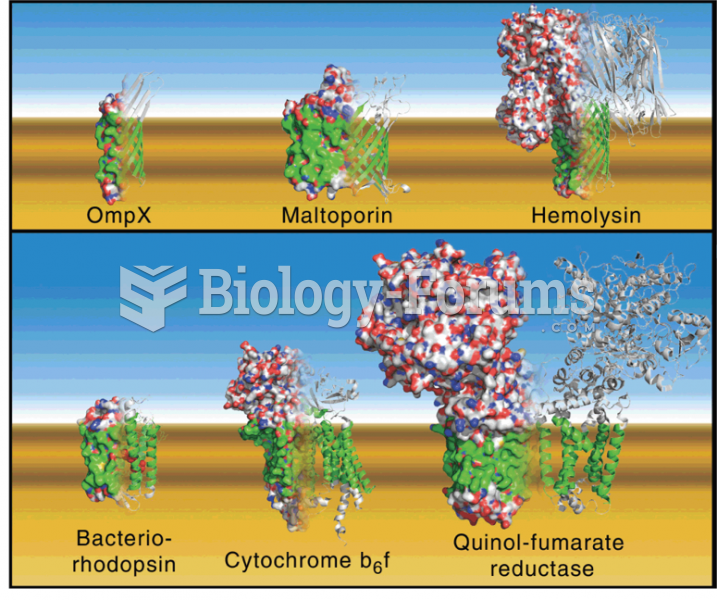|
|
|
More than 30% of American adults, and about 12% of children utilize health care approaches that were developed outside of conventional medicine.
Malaria mortality rates are falling. Increased malaria prevention and control measures have greatly improved these rates. Since 2000, malaria mortality rates have fallen globally by 60% among all age groups, and by 65% among children under age 5.
When blood is exposed to air, it clots. Heparin allows the blood to come in direct contact with air without clotting.
Long-term mental and physical effects from substance abuse include: paranoia, psychosis, immune deficiencies, and organ damage.
According to the FDA, adverse drug events harmed or killed approximately 1,200,000 people in the United States in the year 2015.







